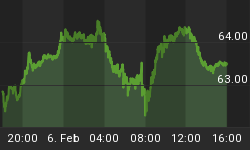In the US, the job market showed another decrease in the pace of job creation. In Europe, economic growth remains subdued. The Federal Reserve should remain on the sidelines for now, and US stocks could correct short-term.
US employment is stagnating
Federal Reserve Chair Janet Yellen is not happy about job market conditions in the US. There are too many workers out of the job market or working only part-time despite wanting full time positions. In reality, the latest data seems to confirm that employment is stagnating. In August, job data reported only 142,000 new positions, the lowest number since the end of winter. In July, the three-month average was 236,000, while in August it decreased to 207,000. The private sector is still underperforming and added only 112,000 positions in August on top of July's 146,000. The unemployment rate fell again, to 6.1%; however, it was mainly supported by a weak labor-participation ratio, as 64,000 more people left the job hunt in August. It now takes an average of 32 weeks to find new work, while wages are not growing. The study of cycles seems to anticipate that unemployment will bottom out sometime in 2014/15 and then rise again for the final third wave of current cycle. Under these conditions, the Fed will not raise rates in the near term, and stocks could correct from actual levels. The S&P 500 index might decline to 1960 and eventually to 1930, provided prices do not increase more than 2025 over the September futures contract.
Are recessionary winds blowing in Europe?
With such lackluster growth and mild inflation, the European Central Bank (ECB) decided to cut interest rates to the historic low of 0.05% and buy private-sector debt security. With interest rates already so low, combining these two monetary interventions was necessary to have a meaningful effect on the economy. This decision should keep the European currency under pressure over the medium term and, hopefully, boost exports. The other side of the story is that the ECB is now obliged to buy sovereign debt security if economic conditions do not improve tangibly. In effect, the German economy has been slowing recently after a very promising start to the year. The IFO index (Institute for Economic Research) fell for the fourth consecutive month, to 106, the lowest level since July 2013. Foreign demand apparently played a role in the decline. Household confidence, as measured by the GFK (Society for Consumer Research) household survey, fell 35 points in August, the sharpest drop since the survey began in 1980. Considering the strong economic ties with Russia, concerns about the conflict between Russia and Ukraine are playing a role in the contraction of household confidence. Sanctions are not working; nevertheless, they are costly, and Russia can retaliate by cutting natural gas and oil supplies to Europe this winter. Exports to Russia have dropped 15%, and the embargo could hit various German companies operating from Russia, where German investment amounts to more than 30 billion Euros.















